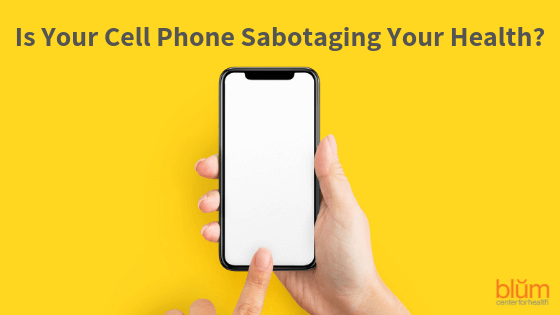
Chances are you check your cell phone for messages, alerts, or calls even when your device isn’t ringing or vibrating. You probably sleep with your phone next to your bed to be sure you don’t miss any calls, text messages, or other updates during the night. And you likely feel lost without your cell phone, reports a Pew Internet & American Life survey.
In fact, the average cell phone user checks their phone 110 times a day, with the highest users hitting the 900 mark, says Locket, an Android app that has collected data on over 150,000 users.
Yes, we are addicted to cell phones.
And the cost of this addiction to our personal well-being is substantial. The tethering to our cell phones interferes with our mental health, physical health and even our relationships.
- The constant barrage of notifications increases our stress level, likely contributing to high blood pressure, headaches, eye strain, and anxiety.
- The anticipation of messages keeps us constantly checking our phones and creates anxiety.
- Cell phone use interferes with human relationships. Studies show that in face-to-face interactions a phone present made the other person think negatively about the cell phone holder.
- The incessant connection to one’s phone makes us less inclined to participate in conversation with those around us. We become less aware.
- Our dependence on our phones as entertainment is a constant source of distraction, making it difficult to be with oneself in a quiet, still, disconnected space.
- When we don’t have our phones we become bored, antsy and depressed.
Clients often tell me they want to feel less controlled by their phones. They want to take back their peace and quiet.
The key? Baby steps and commitment.
8 Ways To Kick Your Cell Phone Addiction
Make No Cell-Phone Zones — Make a pact with other members of your household no cell phones at the table. Ever. Live alone? Put down the electronics, set the table, light a candle and enjoy your meal. You will taste your food, remember what you ate, and be more aware of how much you’re eating.
Bring On The Zen — Introduce meditation, yoga, tai chi or one of the other meditative practices into your daily routine — even if it’s for only 10 minutes it will slow you down, bring your awareness back to your body and reap a myriad of health benefits, including better concentration, lower blood pressure, reduced stress, better mood and better sleep.
Home From Work? Just Say “No” — Implement limits and boundaries in relation to work-related email and messages. Just because someone sends you an email at 10pm in the evening does not mean you have to answer it. When you answer emails you set the precedent that you are available. When does your work day end? You decide: “I will not answer any work-related emails after 7pm in the evening or on the weekends.” And then stick to it. If the mere thought of that makes you anxious create an auto-responder letting people know you will answer their email first thing in the morning.
Blackout Periods — Schedule “No Cell-Phone” Periods during your day. Start small — even 10 minutes. Put it on your calendar (or set an alarm) and disconnect for that time. After a week increase the time, or add another Black Out period to your day. Week by week increase the time until you are able to disconnect for several hours a day.
No Fly Zone — When you travel for holiday set your phone to “no data roaming” so that you only receive messages when you are connected with Wifi. This will limit the amount of new communication that is coming your way and provide a more peaceful journey.
Your Boots Are Made For Walking — Take a walk and leave your phone at home. Look up, look down, pay attention to your surroundings. Taking a walk is a great way to boost your mood, find solutions to challenges, and increase productivity.
Engage With The World — Make a decision to not use your phone in the presence of others. Pay attention to your conversations, make eye contact and give 100% to the other person/s you are with.
Sleep It Off — Do not use your cell phone as an alarm clock. Leave it outside your room. You might consider implementing a sleep routine to help you wean — reading, or listening to music.
Put down your cell phone? The answer is clear. Just say “yes.”
Do you find that you start a new habit but get derailed? Consider private coaching! I help people attain their goals by unraveling those self-sabotaging behaviors that get in the way. Let’s play! I’ll help you create new habits that lead to long-term change. Get what you want. Finally. Check out CoachMe
Meet Melissa: Melissa Rapoport is the Manager of Health Coaching and Lifestyle Programming at Blum Center for Health in Rye Brook, NY. She combines her graduate work in Developmental Psychology with her education in nutrition, health and coaching to create highly individualized programs that result in lifetime change. A contributing author to three international bestselling books, Melissa’s greatest joy is her relationship with her two daughters. To learn more about Melissa’s coaching practice at Blum Center for Health, click here.